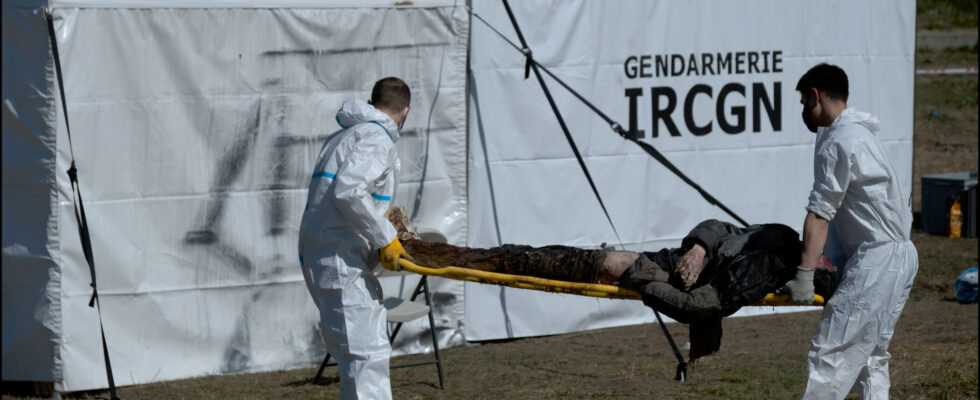With methods worthy of forensic science, agents from all over the world collect evidence of the massacres committed by the Russian army. In this video, our special correspondent in Ukraine, Emilie Blachère, explains the methods and the complexity of this extraordinary investigation.
In Boutcha, France provides logistical support to the Ukrainian authorities with a team from the Criminal Research Institute of the National Gendarmerie (IRCGN). She joins the NGO researchers who are investigating in the hope that the perpetrators of crimes will one day be brought to justice. On April 28, while UN Secretary General Antonio Guterres was visiting the liberated areas near kyiv, ten Russian soldiers accused of committing atrocities there were indicted.
Read also: War crimes in Ukraine: the hunt for executioners is open
Our reporter, Emilie Blachere, followed these investigators who arrived exceptionally early after the abuses: “We had never seen that in the history of a conflict” confirms Emilie Blachere. “We must collect this evidence which may one day be found before an international or national criminal court and above all prove the intention of their author” details our special correspondent in Ukraine.
Bodies are exhumed from mass graves with one imperative: to look for traces of abuse before they disappear
From crumbling buildings to tales of barbarism, everything is scrutinized. Donatella Rovera, a researcher for almost thirty years for Amnesty International, reconstructs the chronology of events using photos and long discussions with the inhabitants. For Human Rights Watch, Belkis Wille also conducts neighborhood surveys in search of witnesses and victims. A man says he was crammed with others for a week in the basement of a heating room. And that the Russians, before their departure, randomly chose eight prisoners to be executed. “Often the perpetrators of war crimes believe that their acts will go unpunished because of the chaos that reigns during a conflict, but the investigators are precisely there to remind them that impunity does not exist” concludes Emilie Blachere.
Photo: Frederic Lafargue/Paris Match
